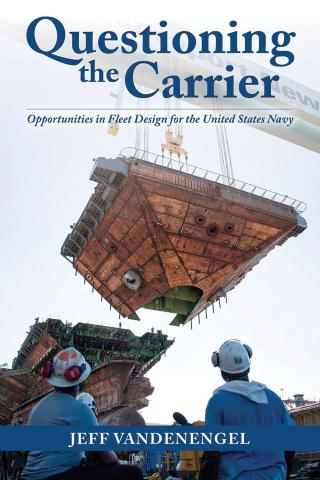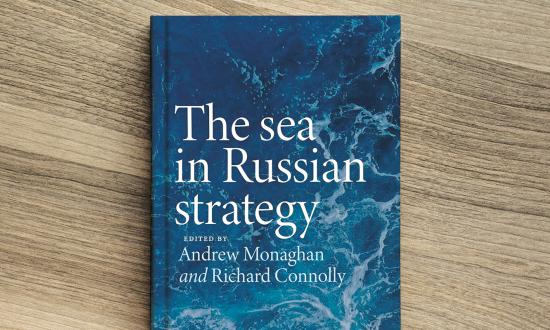The Guarded Age: Fortification in the Twenty-First Century
David J. Betz. Hoboken, NJ: Polity Press, 2024. 256 pp. Figs. Notes. Index. $25.
Reviewed by Lieutenant Colonel Dillon Fishman, U.S. Marine Corps
With the Berlin Wall’s collapse, hopes arose for “the end of history” and the rise of globalization. But a steady series of terrorist attacks have punctuated the years after the Cold War, a sobering reminder of simmering discontentment. The response has spawned an increase in technological and physical solutions largely designed to increase safety, or at least the perception of it.
For professor David Betz of King’s College London, the London underground bombing on 7 July 2005 crystallized the violent rejection of globalization. In The Guarded Age, he asserts that, contrary to initial expectations about globalization, the world is experiencing an intense period of “wallification,” or “securitized architecture,” comprising various forms of fortification and increased surveillance—all undergirded by fear.
Using historical and empirical analysis, Betz ably defends his thesis that fortification is an important part of strategic practice. He amply illustrates the guardedness throughout modern life, both civil and military. It is true, as Betz illustrates, that fortification has been a primary feature of urban design, including in Rome, Vienna, Jerusalem, and Istanbul. Cities have always morphed and changed, using a variety of defensive mechanisms in seeking a balance between security and mobility.
However, modern cities display increased guardedness and ubiquitous surveillance. Today’s “walls” comprise engineering and electronic surveillance systems that alter, regulate, and monitor movement over an extended period. Betz highlights key latent tensions that affect modern warfare. As Western countries demonstrate greater risk aversion, costly fortification is the new norm in contemporary conflict. Western nations will contribute troops, provided they remain sequestered on large, guarded compounds, equipped with ground sensors and monitored by expensive unmanned aerial systems. Military readers will identify with Betz’s experience on a military post at Kandahar, Afghanistan, in which he never left the base. The tension between lives lost and the political goodwill necessary to sustain modern conflicts presents a problematic paradox.
The book’s provocative conclusion is that the dominant mood of our age is anxiety, an acute apprehension of risk at all levels of society. The underlying driver, Betz suggests, may be a quest for a sense of stability amid rapid social change. Manipulating our environment may bring us an artificial sense of security. This salient observation, buttressed by Betz’s thorough examination of historical examples, portends only greater and more sophisticated surveillance.
The reader is left to ponder whether the expense and effort of fortification have yielded commensurate levels of safety, or even the perception of it. Do people feel safer living behind thicker walls, monitored by sophisticated systems?
More broadly, what does this guardedness suggest for the military, including recruitment? As the societal appetite for risk diminishes, children spend hours in front of screens and behind walls—perhaps shielded from danger, but potentially stunted in physical and moral dimensions.
Betz wrote the book to address a gap in modern warfare literature, including scholarship on strategy, which he contends largely ignores fortification. This is a trenchant social commentary that speaks to an audience broader than specialists. The important psycho-social and policy implications regarding the product of “safetyism” transcend military history, strategic theory, and urban planning.
Lieutenant Colonel Fishman is deployed as the deputy staff judge advocate, Combined Joint Task Force–Operation Inherent Resolve.
Questioning the Carrier: Opportunities in Fleet Design for the United States Navy
Commander Jeff Vandenengel, U.S. Navy. Annapolis, MD: Naval Institute Press, 2023. 312 pp. Sources. $34.95.
Reviewed by Commander Chris O’Connor, U.S. Navy
There has been a plethora of articles in Proceedings and elsewhere that point to potential challenges of operating carriers in a fight on the other side of the Pacific. Navy Commander Jeff Vandenengel’s book, Questioning the Carrier, weaves together the threads of this discussion into one cogent conclusion. He carefully builds a case that large nuclear-powered carriers should not be the centerpiece of the future U.S. Navy fleet, but instead be sidelined in favor of more and smaller networked platforms.
Vandenengel does not come to this conclusion lightly. Referencing the work of Wayne Hughes, Jerry Hendrix, Arthur Cebrowski, and others, Questioning the Carrier is a clear-eyed examination of the design of the U.S. Navy and how it should be changed. The book’s foundation is a short history of naval tactics and technological change with breakdowns of air, surface, and undersea warfare operations in recent years. It highlights how today’s technological paradigm is to the detriment of fleet structured to defend large carriers.
The “Flex Fleet” Vandenengel proposes as a solution is based on careful insights informed by lessons in naval warfare. This future navy will be composed of ships that readers are familiar with, such as Arleigh Burke–class destroyers, but also new classes of corvettes, arsenal ships, and light carriers. The author argues that a larger fleet made up of a different variety of platforms would give a much-improved ability to “fire effectively first” in war at sea than a fleet of capital ships.
It is refreshing that this book purposely sets aside the use of uncrewed systems as a panacea for the fleet design problem. This does not mean, though, that optionally manned or large autonomous ships might not be the future crewing modality of the proposed corvettes and arsenal ship classes. There are cultural and structural hurdles to making such a radical change to the Navy. The chapter “100,000 tons of Inertia” pulls no punches in this regard.
The potential weaknesses in the book’s conclusions are ripe for exploration and further discussion instead of dismissal. How might a light carrier work without the protection assets a Gerald R. Ford class needs? How might such a distributed fleet be replenished? Logistics vessels will be taxed and will be juicy targets of the surveillance and strike assets that render large carriers obsolete; so how, too, might fleet logistics be changed?
Questioning the Carrier is a must-read for those interested in naval warfare or fleet design. It is an enjoyable, evocative, and enlightening book that belongs on the shelf of the neophyte and the expert alike.
Commander O’Connor is currently a strategic plans officer at NATO Supreme Headquarters Allied Powers Europe and is the vice president of CIMSEC.
The Ethics of Special Ops: Raids, Recoveries, Reconnaissance, and Rebels
Deane-Peter Baker, Roger Herbert, and David Whetham. Cambridge, UK: Cambridge University Press, 2023. 217 pp. Sources. Biblio. Index. Abbrev. $110.
Reviewed by Captain R. V. Gusentine, U.S. Navy (Retired)
Operation Neptune Spear was a resounding intelligence and special operations success that eliminated Osama bin Laden, an imminent and ongoing threat to the United States. “But,” the authors of The Ethics of Special Ops ask, “was it ethical?” How do we tell, and does it matter? The authors remind us that it does matter, because wars, combat, and gray zone operations are not ends in themselves. They are conducted to shape outcomes and create new conditions for living. It matters because what happens during wars is necessarily reflected in the futures of the nations that wage them and the individuals who fight them.
This is a book about special ops warfighting and human cognition—the upstream part of the special ops kill-chain: who, how, and why we decide to kill or allow human suffering in combat. There are rules that answer this, but should they apply to special operations? And, if so, is this something we should train to?
The authors bring their unique combination of special ops combat experience and martial scholarship from the United Kingdom, Australia, and the United States to bear on what amounts to guidance for navigating a portion of “the unsettled moral landscape of modern war.”
The book is laid out in seven chapters that illuminate special operations core missions and where and how “the rules” intersect and apply, with each chapter summarized in clear and concise conclusions. The authors move through considerations for individuals, units, and groups, and the strategic/policy level. The content is backed up with plain-language descriptions and special operations applications in combat—case study after case study.
The Ethics of Special Ops is a coherent and pragmatic follow-up to the United Kingdom’s Huntley Review (2014), the U.S. Strategic Command’s Comprehensive Review (2020), and the Australian Defense Force’s Afghanistan Inquiry (2020). All these reports investigated and/or assessed specific events, special operations culture in general, and the overall special operations adherence to the law of armed conflict during the decades of coalition war in Afghanistan, Iraq, and beyond.
In the concluding chapter, the authors return to the individual and their notion that personal character alone is not enough to withstand the pressures of “the ethically corrosive atmosphere of modern conflict.” Moral virtue is subject to fatigue, fear, and fatalism, and the nature of special operations makes these operators more susceptible to “moral injury.” Recurring, intense, and remote combat deployments that repeatedly expose individuals to danger and death, without adequate respite or rest in between, have taken their toll on bodies, minds, and souls.
As the authors point out, ethical armoring of special operations forces is essential. Intense, recurring special-ops-worthy training in combat ethics will create ethical habits and instincts to guide individual and group reactions in times of dynamic uncertainty. The authors deliberately stop short of offering a moral theory of special operations but leave to readers that unfinished and urgent work. For moving modern special ops toward a more holistic and resilient warrior ethos—body, mind, and soul—this book is a damn good place to start.
Captain Gusentine is a retired U.S. Navy SEAL officer with 28 years of experience. He is currently course director and principal instructor for the U.S. Special Operations Command’s Strategic Leaders International Course.









